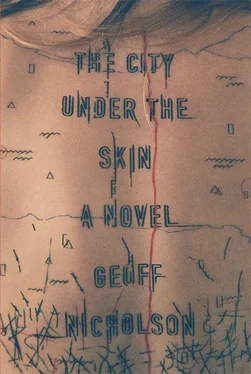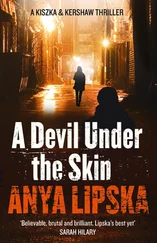“And really hard to portray on stage, I guess,” said Marilyn.
Sam shrugged exaggeratedly, to show this was not his territory. He said, “And some murderers go directly to the nearest cop and confess everything. That kind of takes the sport out of it.”
“Doesn’t make for much of a play, either,” said Marilyn. “But what if they don’t go to the cops yet still feel the need to confess?”
“Like to a priest? A family member? Only a fool trusts a priest. Or his own family.”
Marilyn smiled at him sweetly, as if she knew he was only pretending to be so cynical.
“What if they wrote down their confession, like in a diary?” she said. “Is that possible?”
“I’ve seen that. Gets it off their chest, and if they’re really twisted, then they have the thrill of reliving the murder all over again.”
“Right,” said Marilyn with what she hoped sounded like no more than professional enthusiasm.
“It’s a dumb thing to do, though,” he said. “People have a way of finding other people’s diaries, and they always read them.”
“What if it was in code?”
“That would make life trickier. And a lot less plausible.”
“Or what if maybe they burned the diary after they’d written it?” Marilyn suggested. “Like a sacrifice, burning the sins away.”
“No, it’d just be burning a diary. The sins would still be right there.”
Sam’s fingers moved up and down the keys again, in exaggerated ecclesiastical scampering. A weary drunk leaning against the bar turned around and blessed himself.
“What if you drew a diagram of the murder?” Marilyn said. “Like a map. So there wouldn’t be any actual words saying ‘I did it.’ In fact, depending on how you drew the map, somebody could look at it and still not realize it was showing a murder. You wouldn’t have to draw knives, body parts, pools of blood. Is that the kind of thing murderers ever do?”
“I’m sure somebody somewhere has done it at some time.”
“So how about this? Our character commits the murder…”
“This is your character?”
“Yes.”
“Why does she commit the murder?”
“For money.”
“Female hit man? You know, you’re making it harder and harder for me to suspend my disbelief, but okay, carry on.”
“And afterward,” said Marilyn, “she’s all crazy and worked up, maybe goes into a kind of fugue state. Drives around the streets. And in order to get the murder out of her system, she grabs some random woman from the street. Do you buy that ?”
“I wouldn’t even want to rent it.”
“Stick with me, Sam. She drags the victim into a van, takes her into a basement, straps her down, strips her naked, gets some tattoo equipment, tattoos a map on the woman’s back showing all the details of the murder.”
“Man, I really want to see this show of yours. Why does she do that?”
“So that it’s gone. The confession’s been made. The murderer feels free. And the tattooed woman goes back to the streets. The fugue state disappears. Then sometime later, I’m not sure how long, these women with the tattoos start showing up. Yes?”
“This playwright of yours — who’s his biggest influence? David Mamet? The Three Stooges?”
Marilyn raised her hands in a “search me” gesture.
“I don’t know,” she said. “We’ve still got a lot of exploration to do.”
“I would think so.”
Sam stared down at the keys but kept his hands folded in his lap.
“Do you believe in this bullshit you’re giving me?” he asked.
“I don’t know.”
“Do you want to believe in it?”
Marilyn had no answer to that.
Sam continued, “I guess I’m supposed to say something wise and profound about now, yeah? Follow the money. Cherchez la femme . Round up the usual suspects.”
“You’re not taking me seriously.”
“I’m taking you as seriously as I can. And the truth is, I think you’re miscast. I think you’d make a much better victim than you would a murderer.”
He played a few deep, rumbling, sonorous notes on the bass keys.
“Still, if you need somebody to do the incidental music for the show — give me a call,” he said. “I’m not easy, but I’m cheap.”
“So what’s a life coach?” Billy Moore asked his daughter.
“Search me,” said Carla.
“Look it up for me, will you?”
Carla was sitting at the fold-down desk inside the Lofgren Scamp, laptop open in front of her, and she tapped the words into a search engine.
“Okay, here we go,” she said; then quoted, “‘Life coaching is a practice aimed at facilitating psychological or emotional growth, that helps individuals identify and achieve personal goals, using a variety of techniques, including psychology, sociology, counseling, mentoring, and motivational methods. It is not to be confused with psychotherapy in that it does not focus on examining or diagnosing the past.’”
“Yeah well, I’d hate to be confused,” said Billy. “Tap in the name Dr. Carol Fermor, would you?”
A few moments later, the website for Carol Fermor: Change and Inspiration popped up: a background with a big sky full of melting clouds, and at its center an image of a sleek, serious, confident woman, dark lips, pale eyes, and stylishly sharp gray hair.
“Oh yeah, you’ll like this,” said Carla. “‘Go confidently in the direction of your dreams! Live the life you’ve imagined. As you simplify your life, the laws of the universe will be simpler.’”
“Did she really say that?”
“No, some guy called Thoreau said that. She just put it on her website. What the doctor says is ‘Do you have two selves? Is the self you present to the world in better or worse shape than the self you keep private? Would you like to heal the separateness you experience even as you extend yourself to others?’ Then there’s some stuff about holistic empowerment. You planning to get empowered?”
“It couldn’t do any harm, could it?” said Billy.
“Well, it’d make the social worker happy.”
“That’s what I live for.”
He seemed suddenly distracted and sad. Carla decided he needed cheering up.
“I’ve been thinking about tattooing,” she said.
“For the love of God, why?” said Billy, and instantly realized that he was overreacting. The last thing he wanted to do was alarm his daughter. “I mean, aren’t you a bit young to be thinking about tattoos?”
“I’m not thinking of getting one,” Carla said.
Billy was thoroughly relieved that they weren’t having that conversation.
“The thing is,” Carla said, “I don’t understand how anybody ever starts doing it in the first place. I mean, who’s going to get a tattoo from somebody who’s never done any tattooing before?”
Billy gave a small, uninterested grunt that he hoped was enough to stifle the conversation.
“Maybe most people start on themselves,” said Carla, immune to his tactics. “And I hear that some people practice on a pig, but it’s going to have to be one very docile pig, isn’t it?”
“Maybe a dead pig,” Billy suggested.
“But that’s where I could come in, isn’t it?” said Carla. “Somebody could practice on me. They wouldn’t use a real needle, just a blunt stick, like a knitting needle, something that wouldn’t break the skin. And they could draw a pattern on me, all over my body if they wanted, and then when they’d finished, they’d see if it was any good. And if they didn’t like it, then they’d just wait awhile till it disappeared and then start all over again, keep on doing it until he (or she) got really good. Then move on to real ink. It could be a great after-school job.”
Читать дальше












